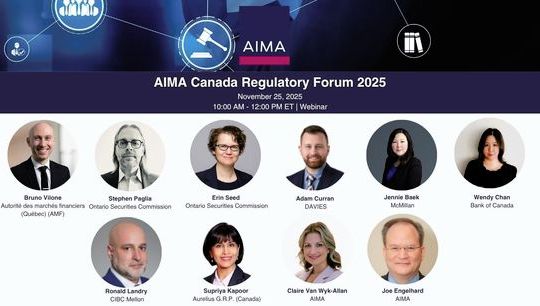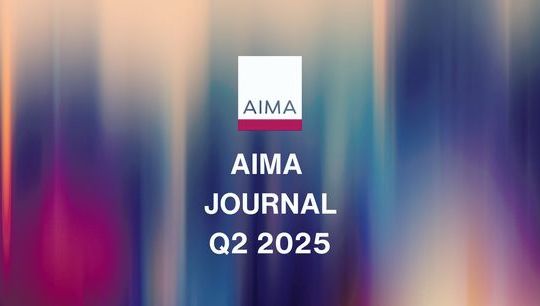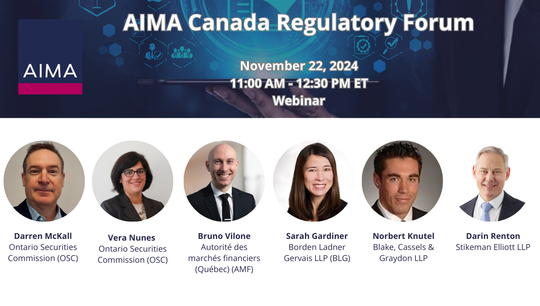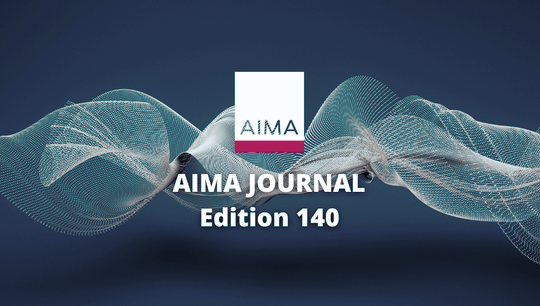The regulatory hosting model in the UK: Current challenges and potential developments
By James Tinworth, Fieldfisher
Published: 30 November 2021
There are a few versions of the regulatory hosting/umbrella model for fund management in the UK, but the basic arrangements are the same. An individual (or individuals) (PM) wants to manage a fund without having its own entity authorised by the Financial Conduct Authority (FCA). PM can set up a UK entity (PM Ltd). PM Ltd and PM then enter into arrangements with an FCA authorised manager (the host). Under these arrangements, the host is appointed as the fund’s manager and PM is seconded from PM Ltd to the host with the intention of PM acting as the individual portfolio manager(s) of the fund. The fund usually has PM Ltd’s branding. Usually, PM Ltd is appointed as the host’s appointed representative (AR). As an AR, PM Ltd can provide non-discretionary investment advice and arrange deals in regulated investments in its name without requiring its own FCA authorisation.
This model has been around in the UK for at least 15 years. It originally gained traction because applications for FCA authorisation were taking nine-12 months and sponsors wanted to launch their funds much sooner (it was a matter of weeks to get the model in place). In the beginning, the model was mainly used as an interim measure until the manager had received its FCA authorisation. The model also provides several other advantages. In particular, the host should provide infrastructure, risk management and compliance support. The model can also provide managers with a good understanding of what it means to be regulated before the manager decides to become regulated in its own right.
You do still see managers who use the model as an interim arrangement, although the environment has shifted in two fundamental ways: (i) managers and hosts are generally happy for the arrangements to be longer-term and (ii) there are much higher barriers to becoming authorised and much greater uncertainty of capital raising and success. The hosting model is now the default option for smaller first-time managers in the UK. The model is generally understood by managers and investors, although certain aspects sometimes cause difficulties. For example (i) PM Ltd is not the fund’s manager: the host is (ii) as an AR, PM Ltd can only advise and arrange deals: it cannot manage, (iii) the relationship between the fund and the host (its manager) is not the same as the relationship (bond?) would be between the fund and PM Ltd (if PM Ltd were the manager), (iv) the agreements between PM, PM Ltd and the host should be a material part of investor due diligence, and (v) the interests of PM and PM Ltd may not always be aligned to the host’s interests. The model is under pressure from political unpopularity, the FCA’s continuing discomfort with the industry and continuing regulatory change.
In the political spotlight
Greensill was a finance business, not a fund management business. The Greensill debacle, however, involved a part of the model (Greensill Capital was an AR (but there were no secondments)) and, crucially, the regulatory host involved is very well known in the fund management space. In some ways, Greensill is a bit of a red herring. Indeed, the FCA said “[Greensill] is not the trigger for our focus on the AR regime: we have been considering it … however, the issues raised by recent events highlight some of the potential harm and challenges associated with the AR model”.1
In other ways, with the political spotlight being on the AR regime and, by extension, the regulatory hosting model, Greensill has most likely encouraged and accelerated FCA action.
The FCA
The FCA has mainly dealt with its concerns behind the scenes. Periodically, we hear about the FCA giving hosts (one, some or all) a hard time over a particular regulatory topic. Sometimes, providers just vanish. The FCA has made its concerns public on at least two occasions in the past few years: the FCA’s review of principal firms in the investment management sector and subsequent “Dear CEO” letter in May 2019 (“We have significant concerns about this hosting model and will continue to assess the risks associated with it”) and the FCA’s review of host authorised fund management firms in June 2021. The regulatory hosting model was not the subject of the latter review (authorised fund management firms act as managers of UK authorised funds and delegate to a suitably authorised investment management firm) but the implications are clear.
The FCA’s main concerns about the model in May 2019 included:
- Conflicts of interest
- Hosts having appropriate control and risk management frameworks, including experienced people, to oversee the funds and the activities of the seconded portfolio managers
- The FCA grouped its key observations from the 2021 review into four main areas:
- Due diligence over delegated third-party investment managers and funds
- Oversight of delegated third-party investment managers and funds
- Governance and oversight
- Financial resources
In its letter to the Greensill Parliamentary Committee referred to above, the FCA stated: “We have also concluded that we need to do further work [in the context of the AR regime] at our gateway for authorisations, and on our supervisory and policy approaches.”
The work programme will include:
- Greater engagement with, and scrutiny of, firms as they appoint ARs … the FCA will “assess whether the firm has appropriate systems and controls to oversee the AR”
- “… [the FCA] will undertake proactive supervision of principal firms that may pose a higher risk of harm ...”
- “Carrying out a range of targeted supervision activity in sectors, or portfolios, where [the FCA considers] that the AR regime is a particular driver of harm”.
- “Undertaking analysis … to determine whether policy interventions are required...This could also include making recommendations to the Treasury for changes in the legislative regime.
The FCA has introduced a periodic fee of £250 payable on each of a firm’s ARs. Of more concern, we understand that the FCA is sometimes taking between three and six months (and sometimes up to nine months) to approve new ARs or individuals at ARs. It used to take a few weeks to get the model in place. Hopefully, these longer timeframes will not become the norm. Such a delay is not reasonable to start-ups and/or their investors.
Continuing regulatory change
We understand that the FCA is already challenging the financial resources of certain regulatory host providers. There has always been a regulatory capital cost to managing a new fund under the AIFMD. The Investment Firms Prudential Regime (IFPR) (implementation date of 1 January 2022) will only increase this cost. The IFPR will have the combined effect of putting more regulatory capital pressure on the host providers themselves (and potentially driving some providers out of the market) but also increasing the attractiveness of the hosting model to a new manager.
What next?
Could the FCA propose a variation to the model where more regulation applies directly to the AR? This could be attractive to both the industry and the FCA. Could the FCA possibly propose a lighter regulatory regime in the UK for small managers? Unfortunately, both seem unlikely. Hosts will continue to be challenged by the FCA (and investors) with the result that (i) the number of firms offering hosting arrangements will be reduced as players choose, or are compelled, to leave; (ii) the remaining providers will need to focus on their infrastructure and enhance where required; and, (iii) it is going to get more expensive.
The model’s arrangements may adapt and evolve. In theory, at least, the AR element of the model (which has historically borne the brunt of FCA and political concern) is in some respects redundant. The PM can manage its fund with only the secondment arrangements with the host being in place.
Will hosts impose a cap on the number of secondees that they can host or will the FCA impose a cap? Will a time limit be placed on hosting arrangements? Will the AR regime be divided into sectors and risk levels (e.g. IFAs, distribution of insurance products, fund management etc.) with differing regimes? If so, what risk level will be given to the regulatory hosting model? I think that the model is here to stay. Without it, new manager start-ups in the UK below a certain level of anticipated assets under management will simply not happen and non-UK managers who wanted to establish a UK presence may reconsider. It should be noted that the Temporary Permissions Regime will be ending in the next couple of years and the UK’s hosting model may be a vital way for EU firms to choose to continue to operate in the UK.
The UK is promoting its position as an asset management hub and, as the UK finds its place outside the EU, it would be yet another act of self-harm to make the UK’s regulatory hosting model unworkable.
Many thanks to the hosts and due diligence specialists who generously contributed their
time and thoughts for this article.







